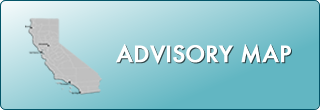Mussel Consumption Warning Lifted: Tests Show No Elevated Risk From SF Bay Mussels
CONTACT: SAM DELSON (916) 324-0955
The California Environmental Protection Agency’s Office of Environmental Health Hazard Assessment (OEHHA) has withdrawn warnings to avoid eating mussels from Berkeley Marina and Rodeo Beach, now that tests show no elevated health risk due to contamination in the area affected by the Cosco Busan oil spill.
Recent tests of mussels collected from those two sites and five additional Bay Area locations showed that all are as safe to eat as before the November 7 oil spill, according to OEHHA, which led the evaluation effort. Earlier tests conducted in the weeks following the spill had shown elevated levels of contaminants in mussels collected from the Berkeley Marina and from Rodeo Beach in Marin County.
“Humans who consume mussels from the spill-impacted area no longer face significant health risks from exposure to oil-based contaminants,” OEHHA Director Joan Denton said in a memorandum to John McCammon, acting Director of the California Department of Fish and Game (CDFG). “Consequently, OEHHA is rescinding the consumption advice for Berkeley Marina and Rodeo Beach.”
Denton stressed that the public should continue to follow OEHHA’s pre-spill health guidelines for mercury and PCB exposure from sport fish caught from San Francisco Bay.
Those guidelines call for women of childbearing age and children to eat no more than one meal per month of sport fish from the Bay, including sturgeon and striped bass caught in the Delta. They also should not eat any striped bass longer than 27 inches or any shark. Women beyond childbearing age and men should eat no more than two meals per month of San Francisco Bay sport fish and should avoid any striped bass longer than 35 inches. One meal for a 160-pound adult is about eight ounces of fish before cooking. The advisory does not apply to commercial fish or to salmon, anchovies, herring or smelt caught from the Bay.
OEHHA evaluated the recent test results. The California Department of Public Health agreed with OEHHA’s conclusion that mussels from all seven locations tested show no significant health risk due to contamination from the oil spill. For more information, visit the webpage San Francisco Oil Spill Health Questions and Answers.
The mussel samples were collected by the CDFG from waters near the East Bay locations of Golden Gate Fields in Berkeley, the Berkeley Marina and the Emeryville Marina. Additional samples were collected from Rodeo Beach and Muir Beach in Marin County, the Hyde Street Pier in San Francisco and Angel Island in the Bay waters North of San Francisco.
The samples were tested for elevated levels of polycyclic aromatic hydrocarbons, cancer-causing chemicals contained in the fuel that spilled into the Bay. Public health officials believe there is no significant risk to human health from eating mussels or other shellfish or fish that contain levels of the tested chemicals below 44 parts per billion (ppb). Tests conducted in November found undetectable levels at most locations, but mussels from both Berkeley Marina and Rodeo Beach had averaged 53 ppb. Recent tests showed levels to be below 14 ppb at all locations where samples were collected. The newer tests showed average levels of 8 ppb at the Berkeley Marina and 11 ppb at Rodeo Beach.
Health advisories on fish caught from other California locations.
Related Notices
Fish, Incident Response, Seafood Safety, and Harmful Algal Bloom Section
Sacramento Office
1001 I Street
Sacramento, CA 95814
Phone: (916) 324-7572
Fish@oehha.ca.gov

